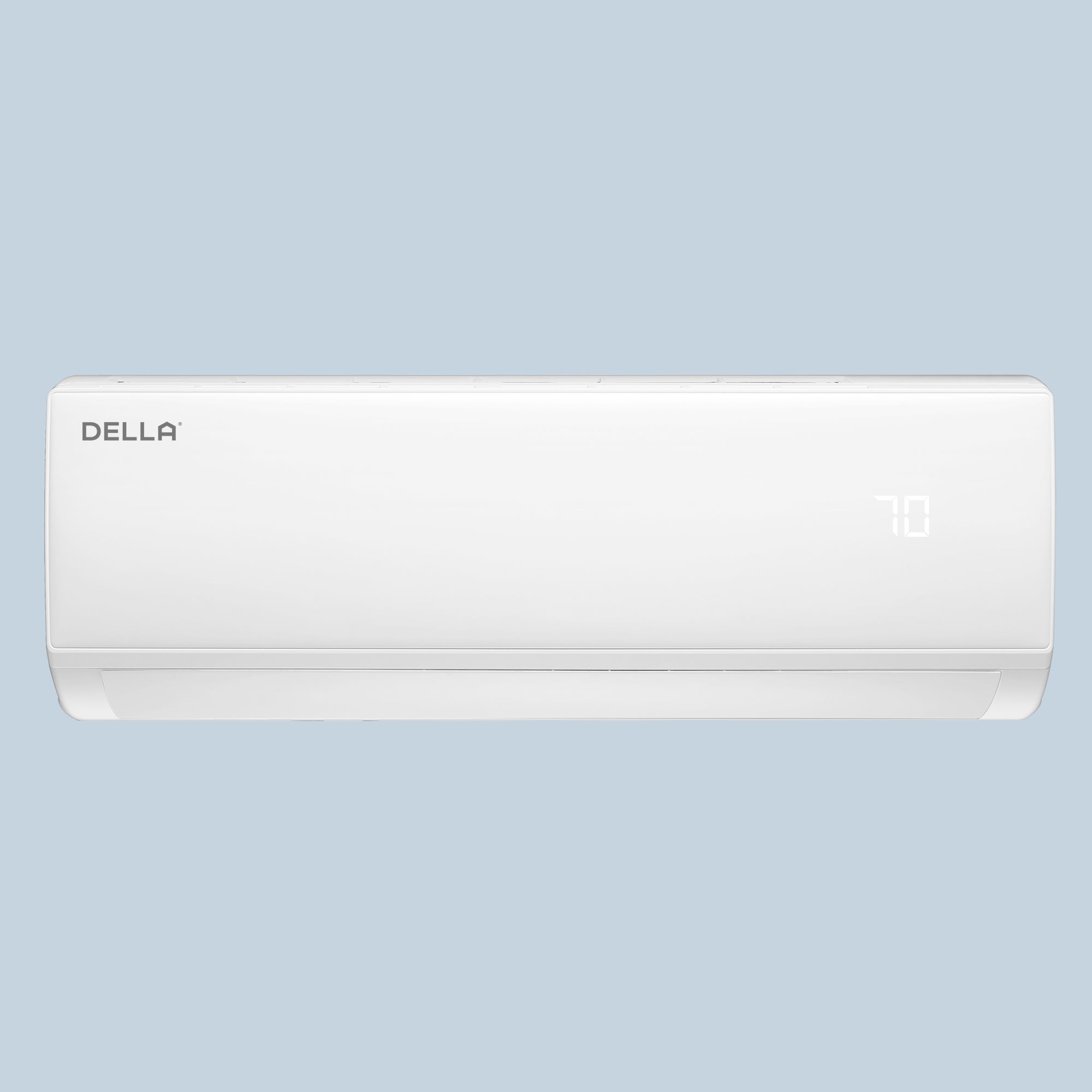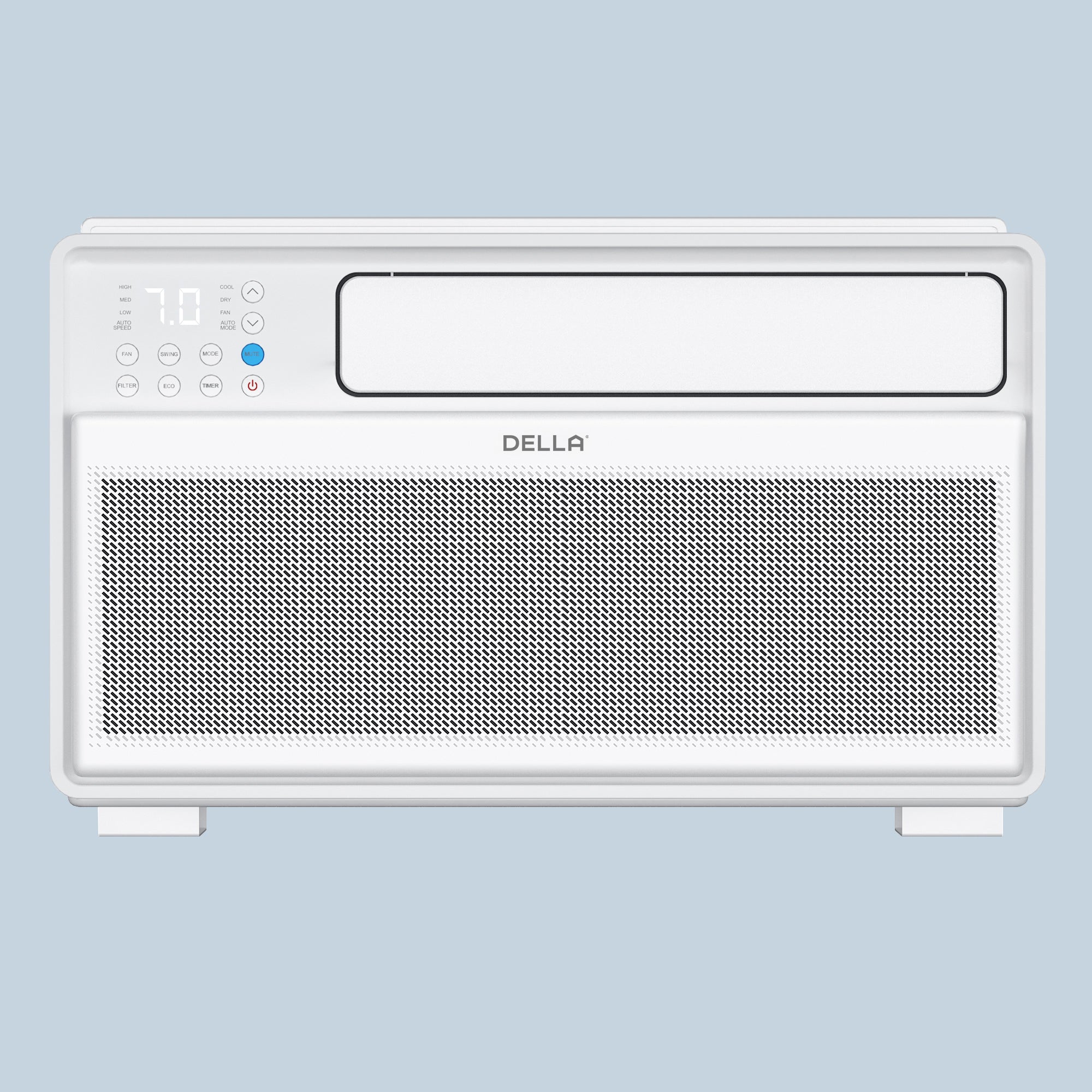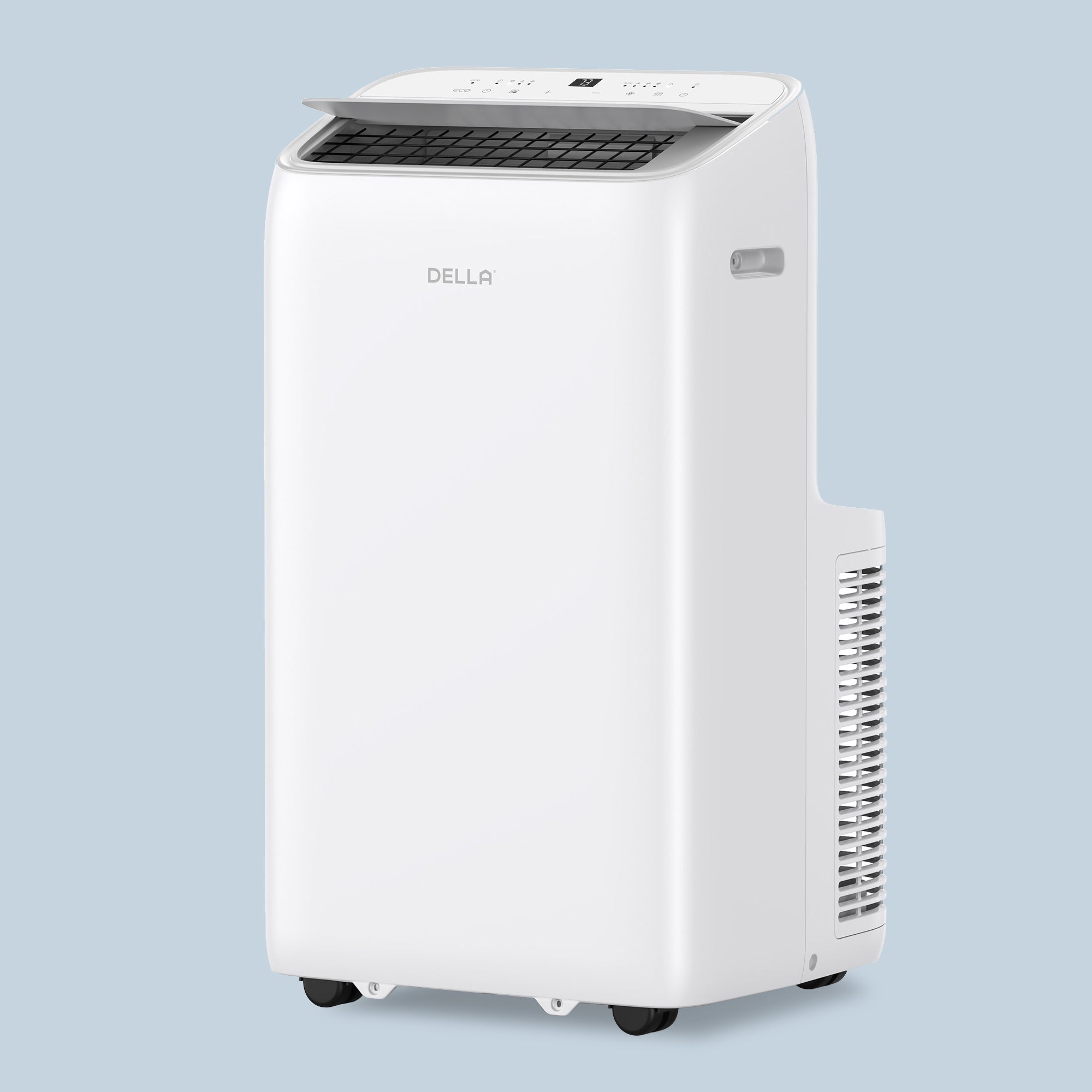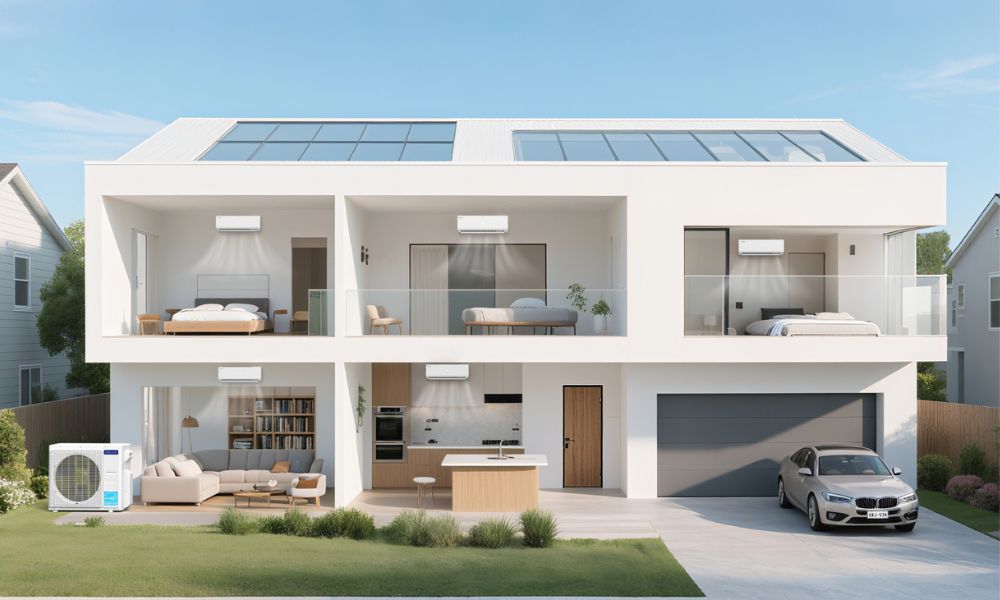The first question that comes to the mind of a homeowner when considering an installation or an upgrade is: what is the cost of a new HVAC system for a 2000 square foot space? It all depends on a number of aspects, including the type of HVAC system you use, brand, complexity of installation, and long-term efficiency.
HVAC systems are a considerable investment, and knowing their costs can help plan properly and budget the costs as well as increase the comfort level and energy efficiency at home. In this guide, we are going to deconstruct how many HVAC capacities you need, the cost by system type, the factors that impact the pricing, and what you should expect in terms of return on investment.
How Much HVAC Do You Need for a 2000 Square Foot Home?
In a 2000 ft home, an air conditioning system is likely to be 3 and 5 tons capacity, depending on a variety of factors including the weather of the area, insulation, and home layout. An average of 20 to 25 BTUs per square foot is needed in order to cool efficiently.
This implies that such a home will require about 40,000-50,000 BTUs. In colder climates, heating needs may be even more differentiated, but with heating and air conditioning being done by the same infrastructure through heat pumps or multi-purpose systems.
Sizing is essential. An improperly sized system will not heat or cool your home to an acceptable level, and a system that is too large will waste both energy and money. For this reason, it is always advisable that the calculation of loads should be carried out professionally before buying.

How Much Does a New HVAC System Cost by Type?
Before diving into the details of each system, here’s a quick comparison of the average installation cost for a 2,000 sq. ft. home, along with the key features that make each HVAC option stand out.
| HVAC System Type | Typical Cost (2000 sq. ft.) |
Key Features |
| Split System | $7,500 – $12,000 | Widely available, high efficiency, requires ductwork |
| Packaged HVAC System | $8,000 – $11,000 | Heating + cooling in one outdoor unit, space-saving, less efficient than split |
| Ductless Mini-Split | $6,000 – $12,000 | No ductwork required, zoned cooling, flexible installation |
| Heat Pump System | $8,000 – $14,000 | Provides both heating & cooling, efficient in moderate climates |
| Hybrid System | $9,000 – $14,000 | Combines gas furnace + heat pump, flexible power source use |
| Geothermal System | $18,000 – $30,000 | Most energy-efficient, high upfront cost, very long lifespan |
The HVAC system cost for a 2000 square foot space varies considerably with the kind of system to be installed. Let’s take a closer look at each system to understand not just the cost, but also how it performs in real homes.
Split System
A conventional split system hvac consists of an indoor evaporator coil and an outdoor condenser. In a 2000 square feet house, a typical range of the installation cost lies between $7,500 and $12,000. Those systems are highly efficient and widely available, but they will demand ductwork, and it will increase the cost of the system in case your house lacks ducts.
Packaged HVAC System
Packaged systems integrate heating and cooling in a single outdoor unit. These will typically cost between $8,000 and $11,000 to have installed. They occupy less space and suit houses that do not have underground rooms or big utility closets. Split systems are, however, normally less efficient.
Ductless Mini-Split System
Ductless mini-splits are becoming the cool choice for homes with no ductwork or people who need different areas of their residence cooled independently. In a typical house of 2000 sq. ft., the cost of installation is about $6,000 to $12,000, depending on how many inside units are to be bought.
DELLA Vario Series 36000 BTU Tri-Zone Mini Split AC
An incredible selection will be the DELLA Vario Series 36000 BTU Tri-Zone Mini Split AC, which can be used to cool or heat an area of up to 2,600 sq. ft, which, of course, is perfect to a house with an area of 2000 sq. ft. This system comes with 12,000 BTU indoor units (2) and 24,000 BTU indoor units which means you can control individual areas separately. It has a SEER2 rating of 19 and is an inverter system providing up to 30% power savings over traditional systems.
Smart features of this DELLA system include the app control, Alexa compatibility, different fan speeds, and silent running at 27 dB. Installation is professional, and pre-charged refrigerant lines are neat. It is quite affordable and costs about $3,600 during sales, making it one of the most affordable options with regard to climate control in the majority of homes.
Heat Pump System
Heat pumps are units that offer both heat and cooling. Installation of a 2000 sq. ft. space can cost between $8,000 and $14,000, depending on whether it is air-source or ground-source. They work effectively in moderate weather, but performance can taper in low temperatures unless you purchase high-tech models.
Hybrid System
Hybrid systems are a gas furnace and an electric heat pump combination. This enables you to alternate between sources of power depending on the cost of energy and weather patterns. It commonly costs between $9,000 and $14,000 to cover a 2000 square foot house. They are flexible, but they have the need for gas hookups and electricity infrastructure.
Geothermal HVAC System
Geothermal systems are the most energy-efficient system, as well as expensive. In a 2000 sq. ft. house, installation costs may vary between $18,000 and $30,000, depending on the degree of complexity in the installation as well as the nature of the soil. In the longer-term perspective, though, energy efficiency can be used to cover the high initial costs, including a long life span.
What Factors Influence HVAC Installation Costs?
There are factors that are directly relevant to HVAC system cost for a 2000 square foot space:
- System Type and Brand: Higher-end models with advanced features cost more upfront but may save on energy bills long-term.
- Ductwork: Homes without existing ductwork can see thousands of dollars added to installation costs.
- Climate Zone: Colder or hotter climates require more powerful systems.
- Energy Efficiency: Systems with higher SEER or HSPF ratings tend to cost more initially but save money in operation.
- Labor Costs: Regional differences in labor rates can significantly impact installation costs.
- Room Layout and Complexity: A complex layout with multiple floors or hard-to-reach areas increases installation costs.
- Installation Time/Season: Scheduling during peak seasons like summer or winter can raise labor costs.
Does Installing a New HVAC System Increase Home Value?
Yes, a new HVAC system tends to increase home prices. Buyers consider newer systems to have lower maintenance expenses and will use less energy. The fact is that before installing a new HVAC system, their home had a high value and, thus, by installing these systems, the value of their homes will go back to 60-70% of the value. In the case of ductless mini-splits or geothermal systems that are energy efficient, it is even more attractive.

What Are the Long-Term Costs Beyond Installation?
Other than the initial cost of the HVAC system cost for a 2000 square foot space, homeowners should factor in the additional costs of sustaining or maintaining the system:
Energy Bills: Bills from the utility company usually depend on your system efficiency and prevailing energy rates.
Maintenance: It may cost between $150 and $300 annually
Filter Replacements: Filters are usually changed between 1 and 3 months.
Repairs: As systems get old, some parts of the system, such as the compressor and fans, may be in need of repair or replacement.
Longevity: The systems are expected to last 12 to 20 years, although top-end models such as geothermal are expected to last even longer with good maintenance.
Frequently Asked Questions (FAQ)
What is SEER2 and HSPF?
SEER2 measures cooling efficiency, and HSPF measures heating efficiency. Higher ratings mean a more energy-efficient system and lower utility bills.
How can I reduce my HVAC installation cost?
Get multiple quotes from different installers. You can also save on labor costs by scheduling your installation in the spring or fall instead of peak seasons.
How often should I have my HVAC system serviced?
Have your system professionally serviced once or twice a year. This regular maintenance helps maintain efficiency, prevent breakdowns, and extend the system's lifespan.
Is it better to repair or replace my old HVAC system?
If your system is over 10-15 years old and a repair costs more than 50% of a new unit, it's often better to replace it. A new, more efficient system will save you money on energy bills over time.
Summary
New HVAC systems cost for a 2000 square foot space, spaces on the type of system that you prefer. Customarily, its split models or packaged units can cost between $7,500 to 12,000, yet mini split systems, such as the DELLA Vario Series 36000 BTU Tri-Zone Mini Split AC, can provide you with super-efficient multi-zone comfort at a price of only $3,600. Geothermal systems are the most expensive to install at the luxury end, costing between $18,000 -$30,000, but the efficiency cannot be compared.
The kind of home heating system that suits you will vary according to climate and budget, in addition to long-term energy costs. The cost of purchase is substantial, but consider long-term cost savings, comfort, and a potential rise in the value of the property to make a decision.
Related Reading:
Cost to Install Mini Split AC System in 2025
How to Recharge Refrigerants for Portable Air Conditioner?
How Many BTU to a Ton? Your Guide to the Right Air Conditioner








LEAVE A COMMENT
All comments are moderated before being published.
This site is protected by hCaptcha and the hCaptcha Privacy Policy and Terms of Service apply.